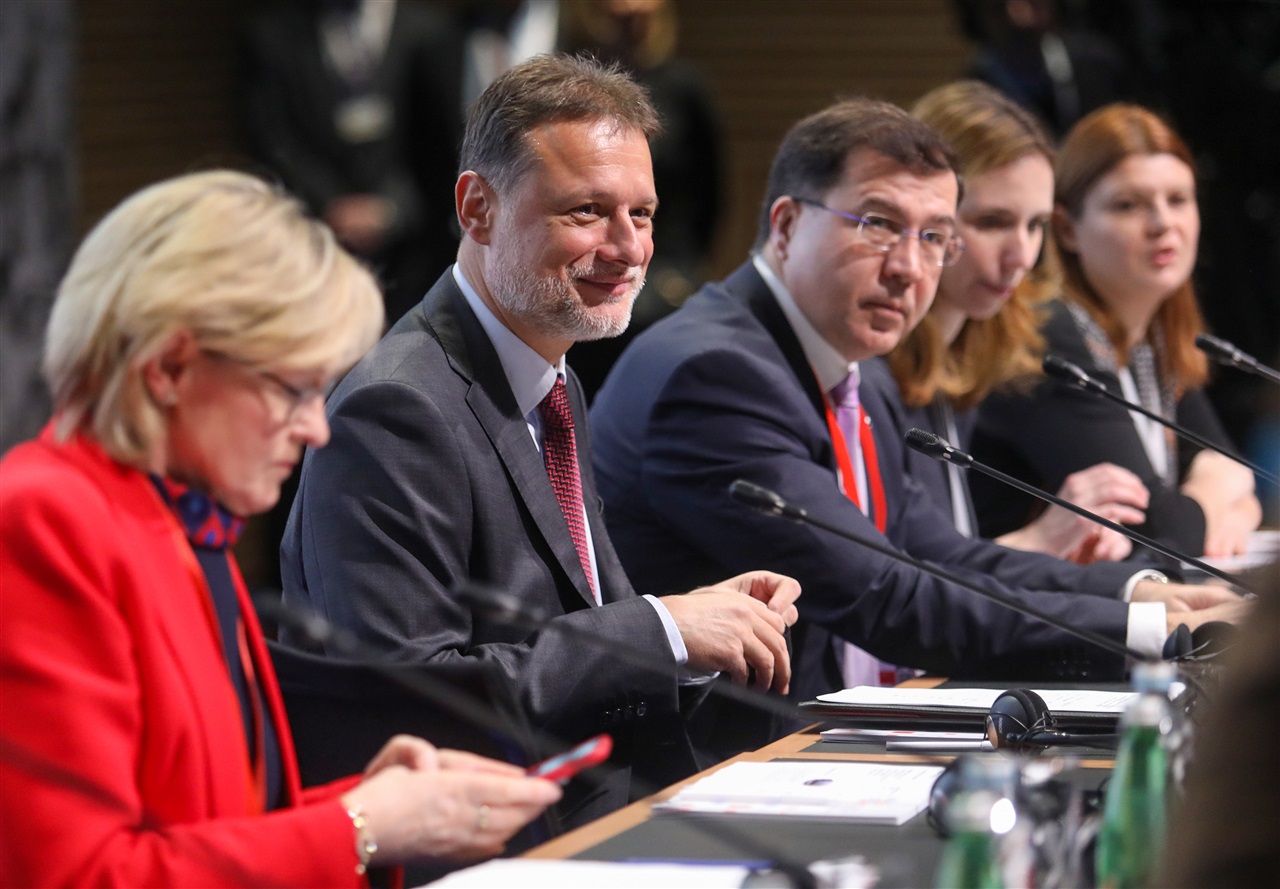
Zagreb – The Speaker of the Croatian Parliament Gordan Jandroković participated in the meeting of the Chairperson of the Committees for Union Affairs (COSAC).
This is the first meeting organised by the Croatian Parliament as part of the parliamentary dimension of the Croatian Presidency of the Council, bringing together the chairperson of the committees of the national parliaments of EU member states and candidate states dealing with European Union affairs, as well as the representatives of the European Parliament and the members of parliaments from Georgia, Norway and Sweden as special guests.
The main topics of the meeting, which the representatives can discuss with the Prime Minister of the Croatian Government Andrej Plenković, the Vice-President of the European Parliament in charge of relations with national parliaments Mairead McGuinness and the Vice-President of the European Commission responsible for democracy and demography Dubravka Šuica, are the priorities of the Croatian Presidency of the Council and the role of national parliaments and COSAC in the decision-making process at EU level during the new institutional cycle.
In his opening address, the Speaker of the Croatian Parliament Gordan Jandroković said that the Presidency of the European Union is of major importance to Croatia for two reasons. Firstly, it comes just six years after Croatia’s accession to the EU, reaffirming its strong commitment, present since it gained independence 28 years ago, to participate in the implementation of the European project, strengthen and promote the values and principles on which the European Union was founded, as well as the common policies that make the European Union a “single European family of nations” and the world’s largest economy. Secondly, the Croatian Presidency comes at a crucial time for the European Union as it is facing numerous internal and external challenges. All these challenges are addressed in the four priorities of the Croatian Presidency.
He identified the United Kingdom’s withdrawal, the Multiannual Financial Framework and the enlargement policy as the most current priorities, stressing that the consensual withdrawal of the United Kingdom from the European Union should be a common goal that would ensure legal certainty to citizens and the business community, as well as provide a foundation for establishing closer relations with the UK in the future. As regards the EU budget for the next seven years, he said that Croatia would strive to find a balance between continuing to finance traditional policies relevant to the development of newer member states, including Croatia, and financing policies aimed at new challenges.
He also stressed the importance of continuing with the implementation of the enlargement policy. The stability of the South East Europe and strengthening of its resilience are in the interest of the European Union in terms of politics, security and economy. Croatia will, therefore, work towards reaching a political decision based on reaffirmed European perspective of existing and potential candidates, as well as on individual approach, their full compliance with the established criteria and consistent, but credible conditionality.
Speaker Jandroković also addressed the future of Europe and welcomed the continuation of dialogue with its citizens, noting that European citizens are the focus of the European project and expect to be heard at the EU level. They should gain more from the benefits and opportunities, as well as experience improvements in their quality of life and the security that EU membership provides. National Parliaments with their democratic legitimacy should have an important role in the dialogue with the citizens, and should thus engage in the work of the Conference on the Future of Europe.
Finally, Speaker Jandroković said that during its Presidency Croatia will be firmly committed to a Europe based on common values, equality, respect for mutual interests, promotion of consensus and seeking of compromise as they represent the only way to overcome all challenges.